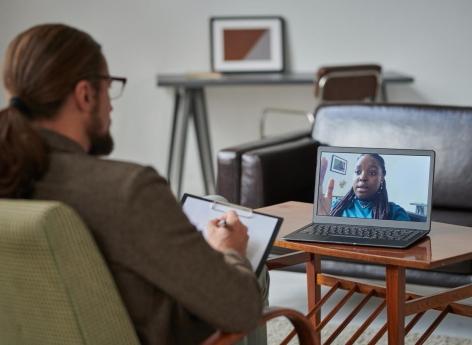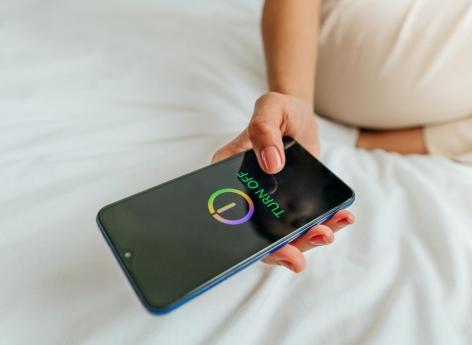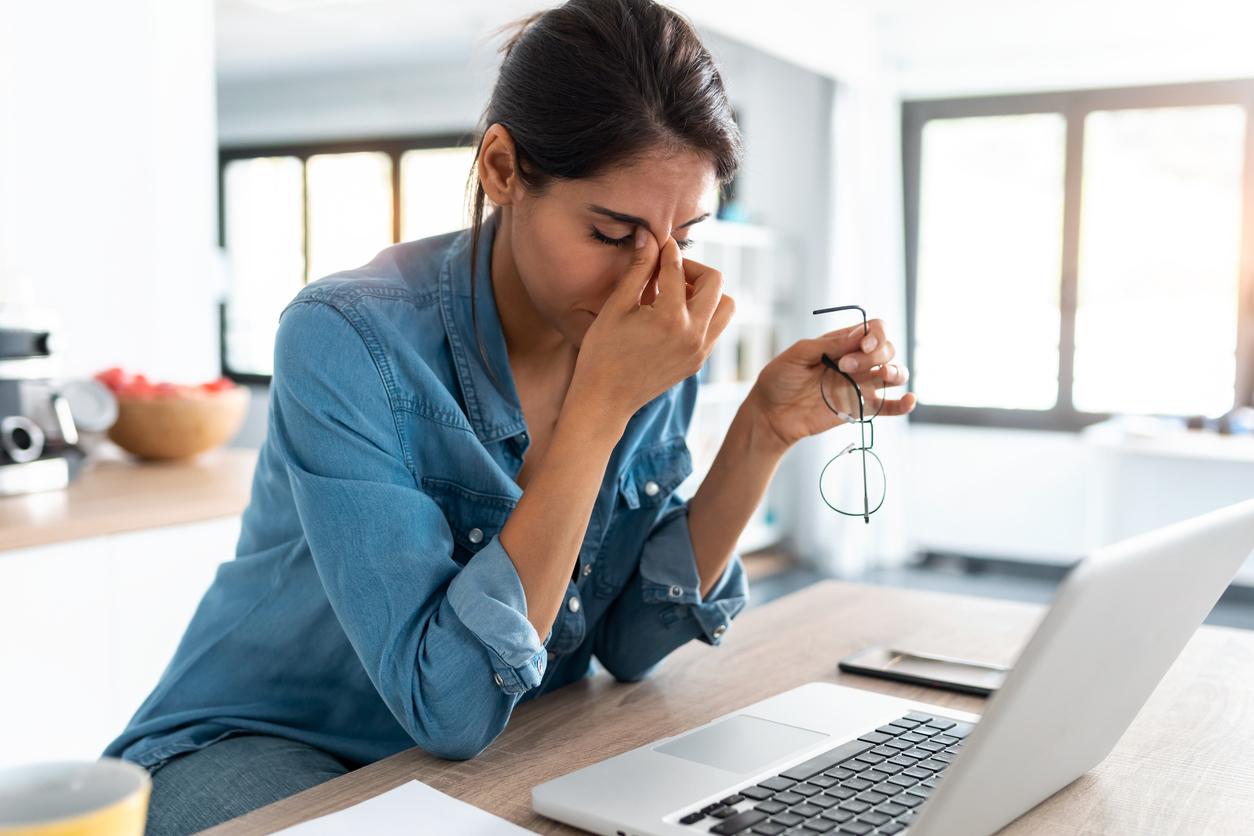While the number of teleconsultations continues to increase in the mental health sector, Dr Caroline Le Maout, adult psychiatrist in Bordeaux, explains to us how and in which cases to conduct a remote interview.

– Better Living Health: According to a new poll, the number of teleconsultations dedicated to the mental health of the French people increased in 2022, going from 5.3% of total medical uses to 5.9%. Since when did you develop this practice?
Caroline LeMaout – I developed it during the Covid-19 health crisis, because it prevented the virus from circulating.
– Under what conditions should a psychological teleconsultation be carried out for it to be effective?
It is a moment that must be privileged. In this sense, you must first make sure you have a good Internet connection. I also recommend organizing the teleconsultation from home, isolating yourself in a quiet and soundproof room so that loved ones (spouse, children, friends, etc.) cannot hear what is being said.
On the other hand, as I am not an analyst, there is no need to lie down: you can remain seated facing the screen.
– Do you also take practical precautions on your side?
Yes, because my practice is an integral part of the therapy. I therefore make sure to do my teleconsultations in my usual office, so that my patients find as much as possible the environment in which they are used to confiding.
– To choose, do you prefer to conduct a teleconsultation by video or on the phone?
Always in the same perspective of environmental security, I prefer to do teleconsultations in video rather than on the phone. Many of my patients also prefer to see me.
– Who decides whether to set up a teleconsultation or a face-to-face session?
It’s me. I explain my decision to my patients when I set the therapeutic framework.
– In which cases can you choose to teleconsult?
I only organize teleconsultations occasionally, with patients I know very well and who are functioning properly. This can, for example, allow them to continue their psychological follow-up and renew their prescription when they are sick, hospitalized or on vacation. If they move, I also take over remotely until they find a new psychiatrist.
– Conversely, in which cases are face-to-face consultations necessary?
I systematically prefer the face-to-face when I receive a person for the first time. I also ask those who are unwell to move around, as many hide their symptoms behind the screen.
– Why this choice ?
Because as I started to explain, it’s not at all the same thing that happens when two bodies are at a distance or in the same room. When my patients come to see me, I can much better assess their discomfort, their physical condition, their gaze, their presence, their ability to organize themselves and their suicidal risk. It is also more difficult to obtain the information I need in teleconsultation, and silences are more difficult to manage.
– Are there cases where you can set up a mixed system in the long term?
Yes, even if it is exceptional. For example, for several years I have been a man whom I only see once a month, because he lives very far from my office.
– Is there any regulation from the health authorities on the subject?
No, each psychologist and each psychiatrist organizes himself as he wishes.
– Is this a good thing, in your opinion?
Not necessarily, because some of my colleagues do more than teleconsult in order to make money. This evolution is very deleterious, because it leads to diagnostic errors and an under-evaluation of patients’ pain, two phenomena with which I am increasingly confronted in my clinical practice.
Personally, I think that psychological teleconsultation is a good thing only when it is used to troubleshoot.
– Have you recently been confronted with particularly problematic cases?
Yes. For example, I have been a patient for months whose problem required certificates and who obtained them in just one teleconsultation with a psychiatrist totally unknown to the battalion. This kind of thing makes me angry, it’s absurd.
– Some practitioners wish to be paid in cash at the end of the sessions. Does a teleconsultation involve a specific means of payment?
No, patients pay me for their teleconsultations by credit card. As I am in sector 1, they are all reimbursed, and those on ALD (long-term illness) have nothing to advance.
















